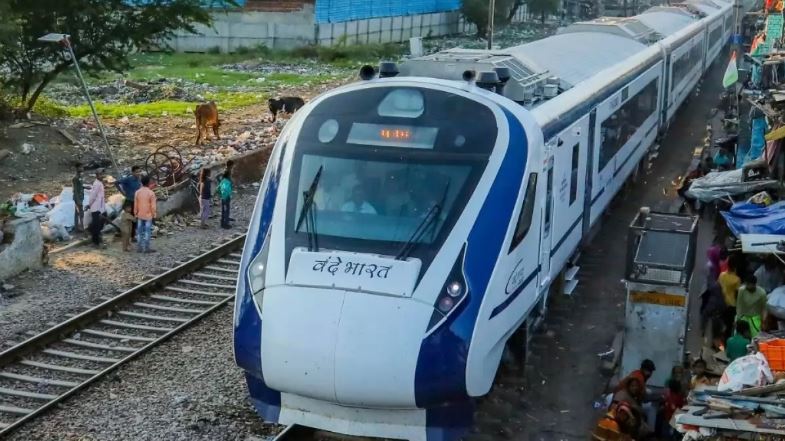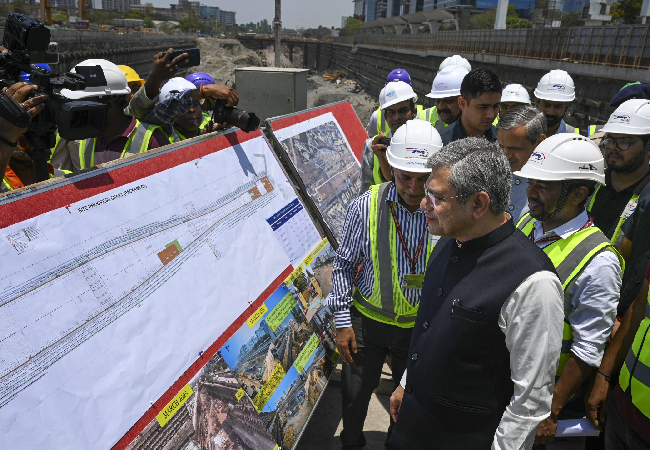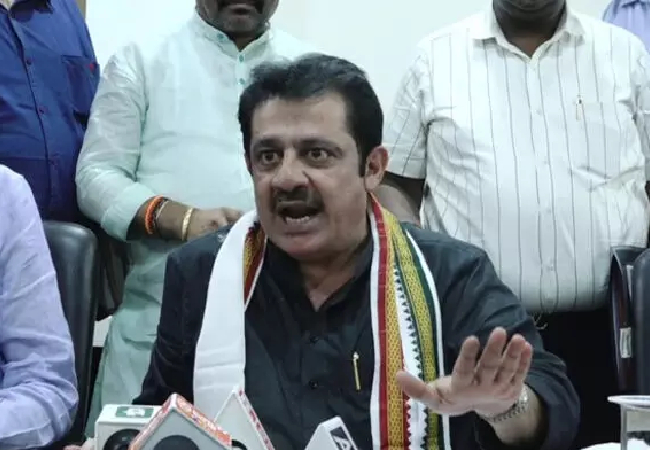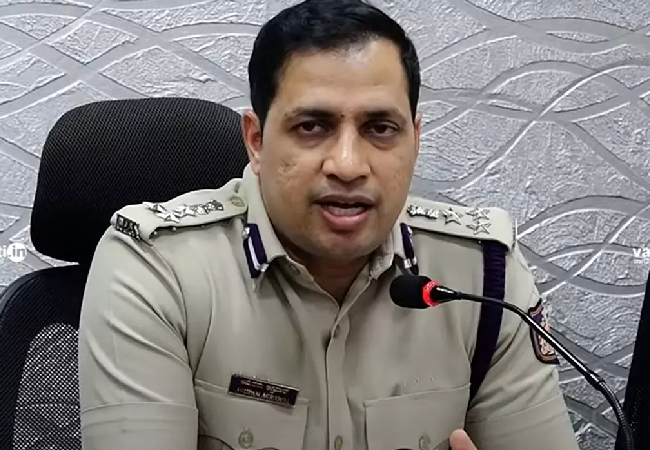New Delhi, Apr 17: India's fastest train 'Vande Bharat Express' has been running at an average speed of around 83 kmph over the last two years despite being capable of hitting a maximum of 180 kmph owing to poor track conditions, a reply to an RTI query has revealed.
The RTI, filed by Madhya Pradesh-based Chandra Shekhar Gaur, said the average speed of the semi high-speed train was 84.48 kmph in 2021-22, while the same was 81.38 kmph in 2022-23.
The Vande Bharat Express is an electric multiple-unit train operated by the Indian Railways. It was designed by the Research Designs and Standards Organisation (RDSO)and manufactured by the Integral Coach Factory (ICF), located in Chennai.
The Vande Bharat trains, built to run at a speed of 180 kmph, have been capped at 130 kmph for commercial operations due to track conditions, officials said, adding that the trains are unable to hit even this speed limit over most stretches in the network.
The officials asserted that the speed of such trains varies depending on the track conditions.
While the Mumbai CSMT-Sainagar Shirdi Vande Bharat Express has the lowest average speed of around 64kmph, the fastest average is maintained by the country's first Vande Bharat Express train launched in 2019 -- New Delhi-Varanasi Vande Bharat Express which runs at an average speed of 95 kmph.
The Rani Kamalapati (Habibganj)-Hazrat Nizamuddin Vande Bharat Express is a close second, maintaining an average speed of 94 kmph.
Officials said the average speed of Vande Bharat trains is better than Rajdhani and Shatabdi Express trains due to its faster acceleration/deceleration in comparison.
"One has to understand that no mode of transport can maintain its maximum speed throughout its journey. The condition of the surface it is running on determines its speed. The average speed of each Vande Bharat train in every section is faster than the fastest train of that section. For example, it is running with maximum permissible speed of 160 kmph between Agra Cantt Tughlakabad," an official said.
The railways has ambitious plans for these trains, 14 of which are currently operational on prime routes, cutting the average travel time by several hours in many routes. While the current versions of the trains are only chair car, the national transporter plans to introduce sleeper versions soon.
Officials said while these trains are built to run at high speed, the rail network is also being upgraded so that Vande Bharat like trains can attain higher speed in the future.
The advanced version of Vande Bharat trains will be able to attain a maximum speed of 200 km per hour (kmph).
Let the Truth be known. If you read VB and like VB, please be a VB Supporter and Help us deliver the Truth to one and all.
Mumbai (PTI): Railway Minister Ashwini Vaishnaw said on Saturday that the work to construct the bullet train’s origin station at BKC in Mumbai is progressing rapidly.
Vaishnaw visited the under-construction underground station at Bandra Kurla Complex (BKC) and reviewed its on-ground progress.
He was accompanied by officials from the National High-Speed Rail Corporation Limited (NHSRCL), which is executing the over 500 km-long Mumbai-Ahmedabad Bullet Train project, along with representatives from Central Railway and Western Railway.
He said the lowest B3 basement level and the strengthening of the station walls have been completed.
"The work at the bullet train's origin station in BKC is progressing very fast. The station wall work has been started, and simultaneously, the tunnel work is progressing very fast," the Railway Minister told reporters.
Beyond the tunnel portion (Shil Phata), all ongoing works are moving at a high speed in the Maharashtra section following the land acquisition, he added.
He said a multi-storey structure is planned at the BKC station.
"The operational areas will be located on levels B1 to B3. The B3 will serve as a train parking area, B2 will house operational functions, and B1 with the ground level will serve passengers. Work is underway to build this world-class station," he added.
NHSRCL officials said that approximately 76 per cent of the excavation work at the BKC bullet train station has been completed.
Following the inspection, the Minister proceeded to Pune, where he was scheduled to flag off two long-distance trains later in the evening.
The total cost of the Mumbai-Ahmedabad High-Speed Rail Corridor project is estimated at Rs 1.08 lakh crore. As per the shareholding arrangement, the Government of India will contribute Rs 10,000 crore, while the states of Gujarat and Maharashtra will each contribute Rs 5,000 crore. The remaining funding will be provided through a loan from Japan at 0.1 per cent interest.
Maharashtra Chief Minister Devendra Fadnavis had last week said that the ambitious bullet train project will become operational by 2028.





